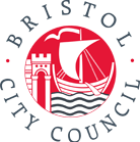Pioneering group helping stroke survivors get back to work
- 10th October 2025
A ground-breaking group in Bristol is helping stroke survivors prepare for returning to work.
Sirona‘s Integrated Community Stroke Service piloted eight weekly group sessions as part of its rehabilitation programme for people who have had a stroke.
In the UK, a quarter of people who have a stroke are of working age, and more than a third give up their job afterwards.
The pilot was developed by health professionals alongside staff from Bristol After Stroke, the Stroke Association, North Bristol Advice Centre and disability employment advisers from the Department for Work and Pensions (DWP). The sessions were supported by Bristol Health Partners’ Stroke Health Integration Team.
The group is the first of its kind in Bristol, North Somerset and South Gloucestershire and topics covered include applying for jobs and preparing for interviews and work; benefits, reasonable adjustments and the Access to Work Scheme; and the role of the disability employment adviser.
Howard James, from Clevedon, has had two strokes and was referred to the group by his speech and language therapist. The sessions inspired him to ask his former employer for a voluntary role as an activity coordinator at a care home. Two months later he was offered the job on a permanent basis.
He said:
“People don’t know what support is out there or how to ask for it and it can leave them feeling very lonely and sorry for themselves. I was given so much information at the sessions, and they were very encouraging.
“Halfway through, I was inspired to contact my former employer. It helped me to fulfil my objective to get back into work. The group is vital because it’s so important people know what support is out there and how to help themselves.”
Helen Ellis, Occupational Therapist with Sirona’s Integrated Community Stroke Service, said:
“We wanted to improve the support on offer for people who had been unable to return to work six months or more after a stroke. We worked with several organisations to give participants the information and support they needed to prepare for their next steps.
“Hearing the participants describe their application of learning, their next steps and plans for the future was incredibly inspiring, and I was delighted when one participant announced he had returned to work during the course, and another had an interview straight after it finished.”
The sessions were so successful they are now running again with a new group of participants.
Rebecca Sheehy, Bristol After Stroke’s Chief Executive, said:
“Bristol After Stroke is so proud to be part of this important work. We know from feedback from stroke affected people that returning to work after a stroke can be a real challenge. Some may need workplace adjustments, new training or a career change but navigating all of this can be overwhelming.
“This group seeks to give people the knowledge, understanding and courage to face these challenges. This collaboration with Sirona, the Stroke Association and the DWP is a great example of the partnership working that is going on in the region to support Life After Stroke.”
Jacqui Cuthbert, the Stroke Association’s Associate Director for the South West and Channel Islands, said:
“Returning to work is one of the biggest concerns stroke survivors ask us about, which is why we’re delighted to support this groundbreaking programme. It complements the information available on our website for stroke survivors who would like to know more about returning to work and getting the support you need.
“We look at your rights at work if you have a disability. We also explain the types of financial and practical support available. Go to www.stroke.org.uk and search for ‘work and stroke’. There’s also guidance for employers on how they can support stroke survivors returning to work.”
Annette Parsons, Disability Employment Adviser, Department for Work and Pensions, Avon, Somerset and Gloucestershire District, said:
“It was a privilege to be part of such meaningful conversations and to hear first-hand the stories, challenges, and triumphs of those navigating recovery.
“It not only broadened my understanding of the journey many face after stroke, but also highlighted the role that occupational therapy plays in supporting rehabilitation and return to everyday life.”






